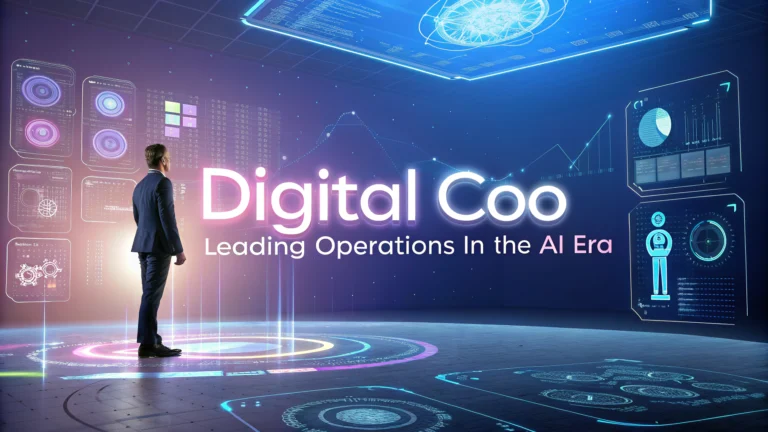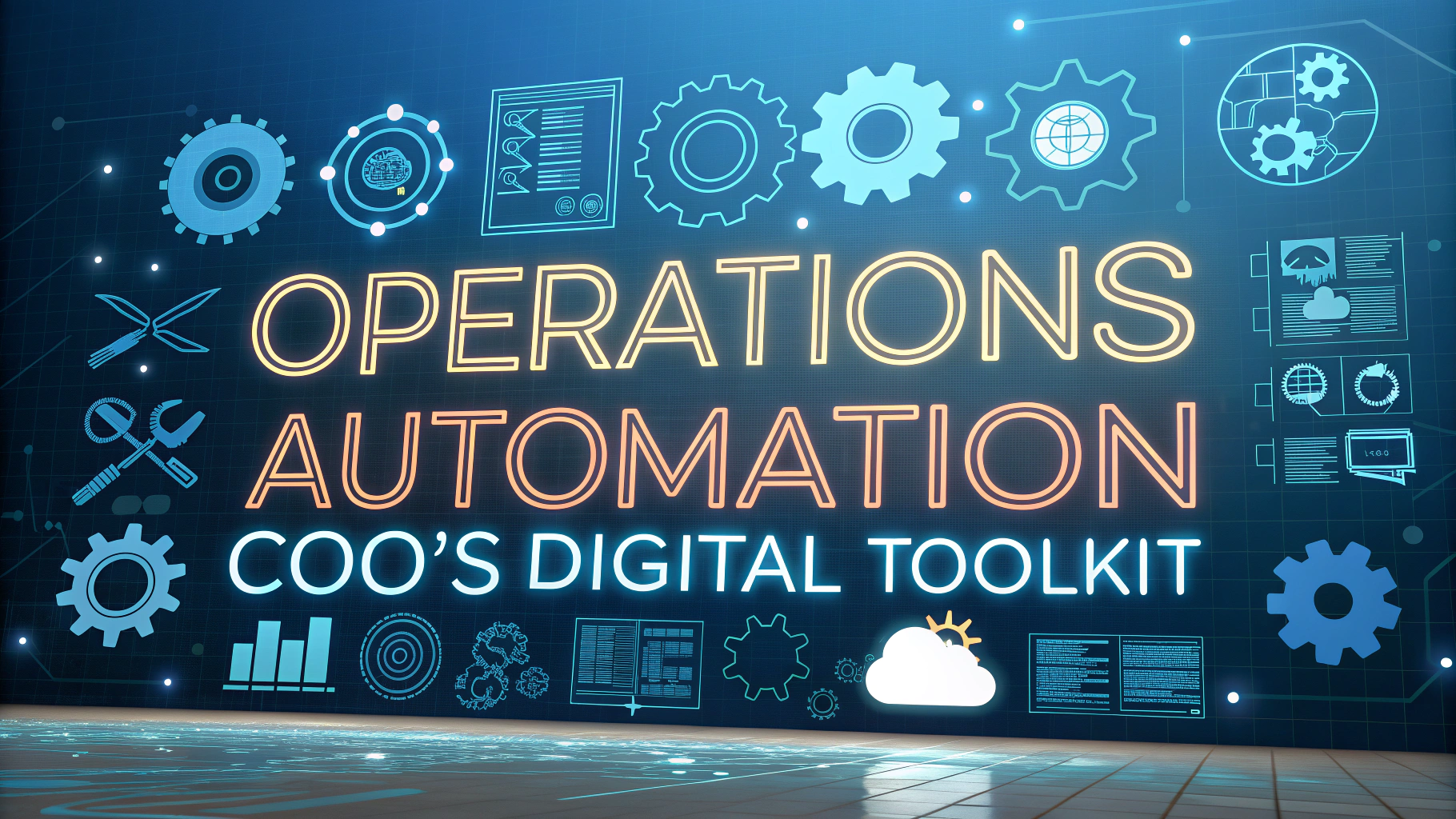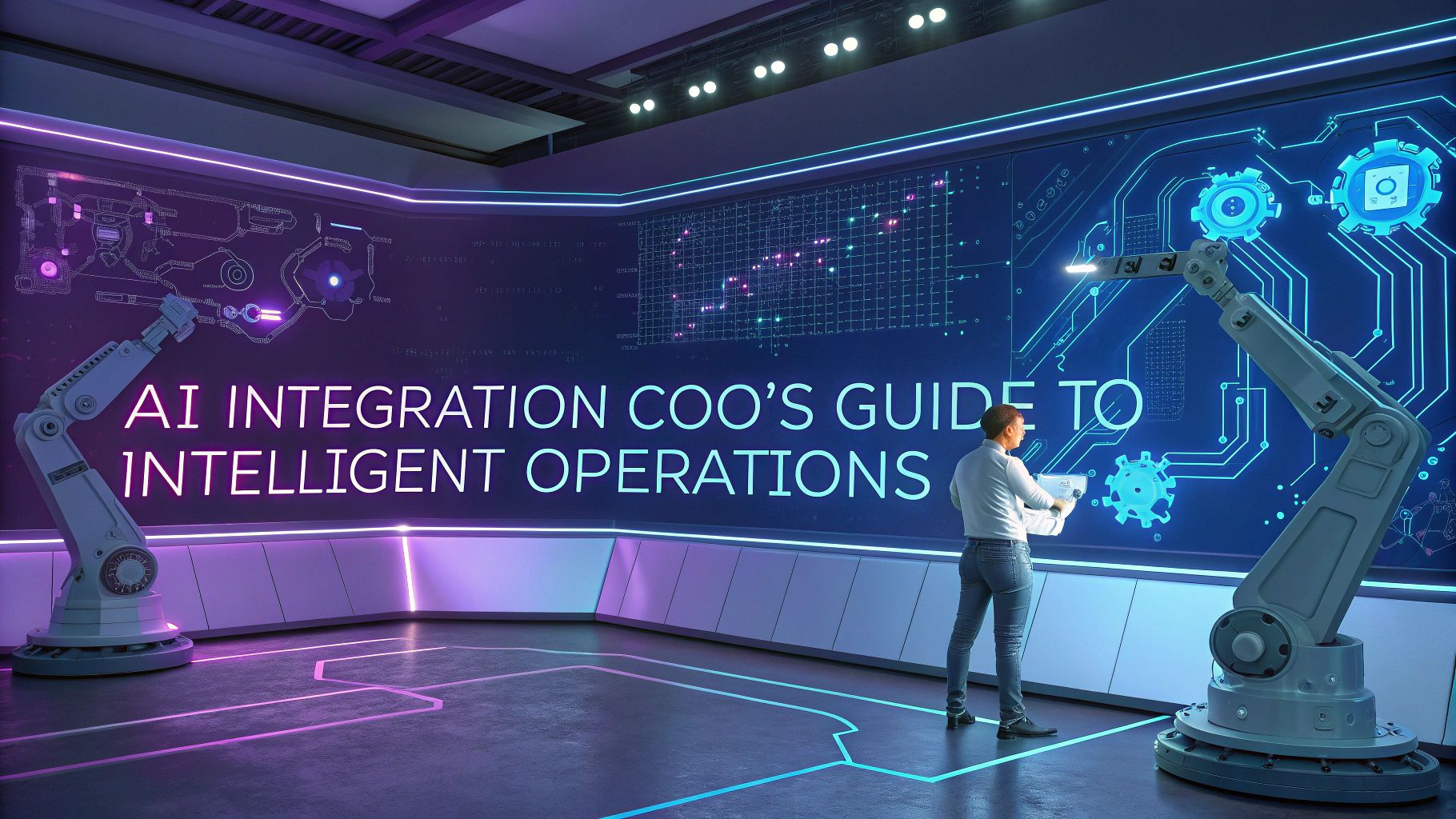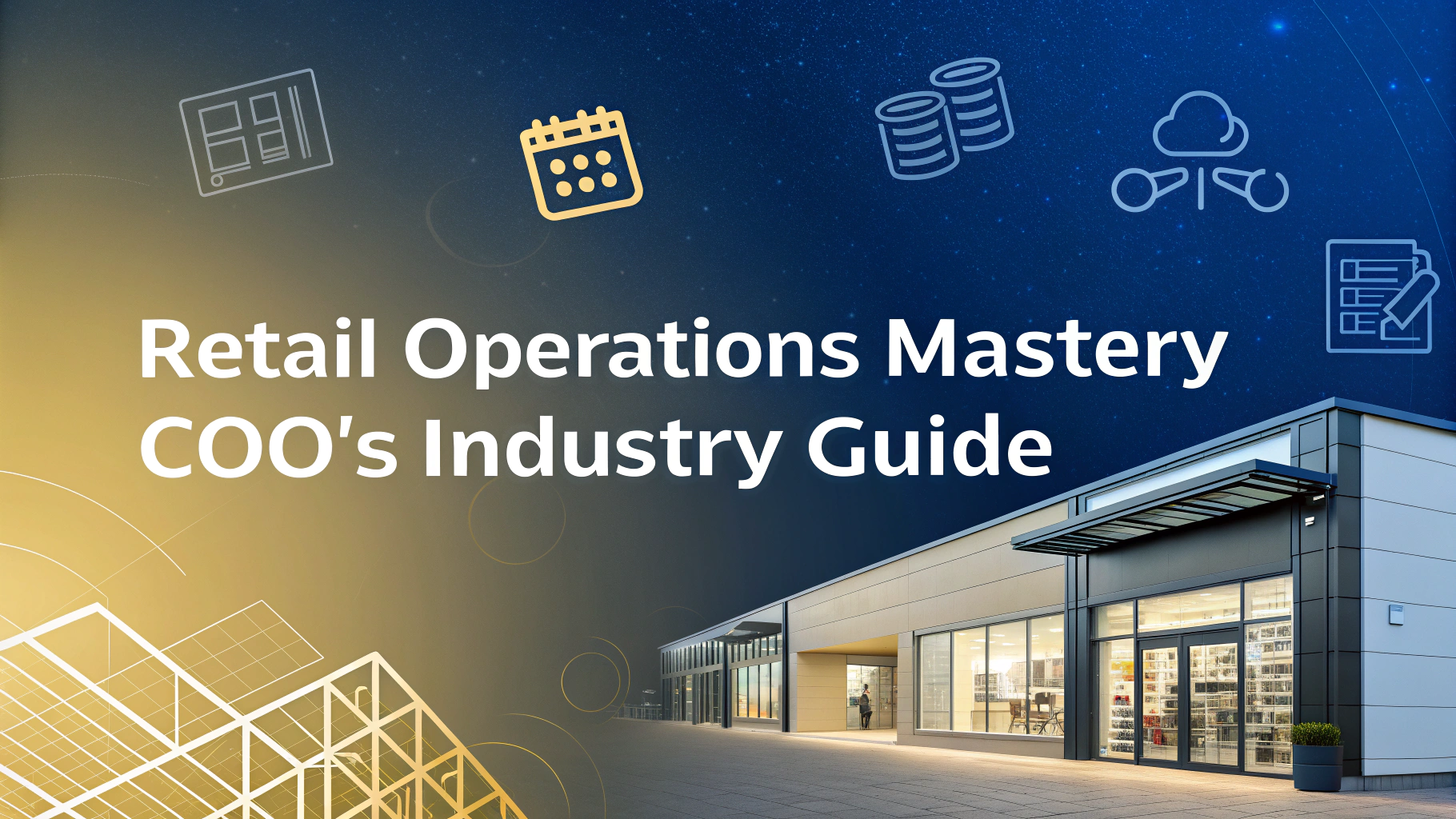The role of Chief Operating Officer has transformed dramatically with the rise of artificial intelligence and automation technologies.
Modern COOs must balance traditional operational excellence with digital transformation initiatives that leverage AI capabilities across the organization.
This guide explores how COOs can effectively lead operations while incorporating AI solutions to drive efficiency, innovation, and competitive advantage.
Key Responsibilities of the Digital COO
- Developing and executing AI-driven operational strategies
- Overseeing digital transformation initiatives
- Managing cross-functional teams and technology resources
- Ensuring operational efficiency and process optimization
- Maintaining data security and compliance standards
Essential AI Implementation Areas
| Operation Area | AI Application | Expected Impact |
|---|---|---|
| Supply Chain | Predictive Analytics | 20-30% efficiency improvement |
| Customer Service | Chatbots & AI Assistants | 24/7 support capability |
| Production | Machine Learning Optimization | 15-25% cost reduction |
Building AI-Ready Operations Teams
Create a dedicated AI transformation team that includes data scientists, engineers, and business analysts.
Invest in employee training programs focused on AI literacy and digital skills.
Foster a culture of innovation and continuous learning within the organization.
Technology Stack Requirements
- Data Infrastructure: Cloud platforms (AWS, Azure, GCP)
- Analytics Tools: Tableau, Power BI, Python
- AI/ML Platforms: TensorFlow, PyTorch, Azure ML
- Process Automation: UiPath, Blue Prism, Automation Anywhere
Measuring Success in the AI Era
Track these key performance indicators (KPIs) to measure AI implementation success:
- Process automation rates
- Cost savings from AI implementations
- Employee productivity metrics
- Customer satisfaction scores
- Return on AI investments
Risk Management and Compliance
Implement robust data governance frameworks to ensure AI systems comply with regulations.
Regular audit AI systems for bias and ethical considerations.
Maintain transparency in AI-driven decision-making processes.
Partnerships and Resources
- Industry Organizations: COO Forum, AI Industry Association
- Technology Partners: Leading cloud providers, AI solution vendors
- Research Institutions: MIT Sloan, Harvard Business School
Moving Forward with AI Leadership
Start with pilot programs in high-impact areas to demonstrate AI value.
Build scalable AI solutions that can grow with your organization.
Stay informed about emerging AI technologies and industry best practices.
Strategic Planning and Roadmap Development
Create a comprehensive AI implementation roadmap spanning 3-5 years.
Prioritize initiatives based on business impact and resource requirements.
Align AI strategy with overall business objectives and growth targets.
Change Management and Communication
- Develop clear communication strategies for AI initiatives
- Address employee concerns about AI adoption
- Create feedback loops for continuous improvement
- Document success stories and lessons learned
Budget and Resource Allocation
Investment Areas
- Technology infrastructure and platforms
- Talent acquisition and development
- External consultants and partners
- Training and certification programs
Cross-Functional Collaboration
Establish AI centers of excellence across departments.
Create collaborative frameworks between IT, operations, and business units.
Implement shared governance models for AI initiatives.
Navigating the Future of Operations Leadership
The modern COO must evolve from traditional operational management to become a digital transformation leader.
Success in the AI era requires a balance of technical expertise, strategic vision, and change management capabilities.
By embracing AI technologies while maintaining focus on core operational excellence, COOs can drive their organizations toward sustainable competitive advantages in an increasingly digital world.
FAQs
- What is the role of a Digital COO in the AI era?
A Digital COO oversees operational efficiency through digital transformation, implements AI strategies, manages tech infrastructure, and ensures seamless integration of artificial intelligence across business operations while maintaining traditional COO responsibilities. - What key technologies should a Digital COO be familiar with?
Digital COOs should be well-versed in AI and machine learning, cloud computing, data analytics, robotic process automation (RPA), enterprise resource planning (ERP) systems, and digital workflow management platforms. - How does AI impact operational decision-making for COOs?
AI enables data-driven decision-making through predictive analytics, real-time monitoring, automated reporting, and intelligent forecasting, helping COOs optimize resource allocation, supply chain management, and operational efficiency. - What skills are essential for a Digital COO in the AI era?
Essential skills include digital literacy, change management, data analysis, strategic thinking, technology adoption expertise, cross-functional leadership, and the ability to balance automation with human workforce management. - How can Digital COOs ensure successful AI implementation?
Digital COOs must develop clear AI adoption strategies, ensure proper data infrastructure, manage change effectively, provide adequate training, maintain cybersecurity, and establish metrics for measuring AI implementation success. - What are the main challenges Digital COOs face when integrating AI?
Key challenges include resistance to change, legacy system integration, data quality issues, skill gaps in the workforce, cybersecurity concerns, and maintaining human-AI collaboration balance. - How does a Digital COO measure ROI on AI investments?
ROI is measured through operational efficiency metrics, cost reduction analysis, productivity improvements, error rate reduction, customer satisfaction scores, and time-to-market improvements for new initiatives. - What role does a Digital COO play in ensuring ethical AI use?
Digital COOs are responsible for establishing AI governance frameworks, ensuring compliance with regulations, maintaining transparency in AI decisions, addressing bias in AI systems, and protecting data privacy. - How should Digital COOs approach workforce transformation in the AI era?
They should focus on upskilling existing employees, creating hybrid human-AI teams, developing new roles and responsibilities, implementing change management strategies, and maintaining clear communication about AI adoption. - What are the key performance indicators (KPIs) for a Digital COO?
Important KPIs include operational efficiency metrics, digital transformation progress, AI adoption rates, cost optimization, process automation levels, employee productivity, and customer satisfaction scores.








